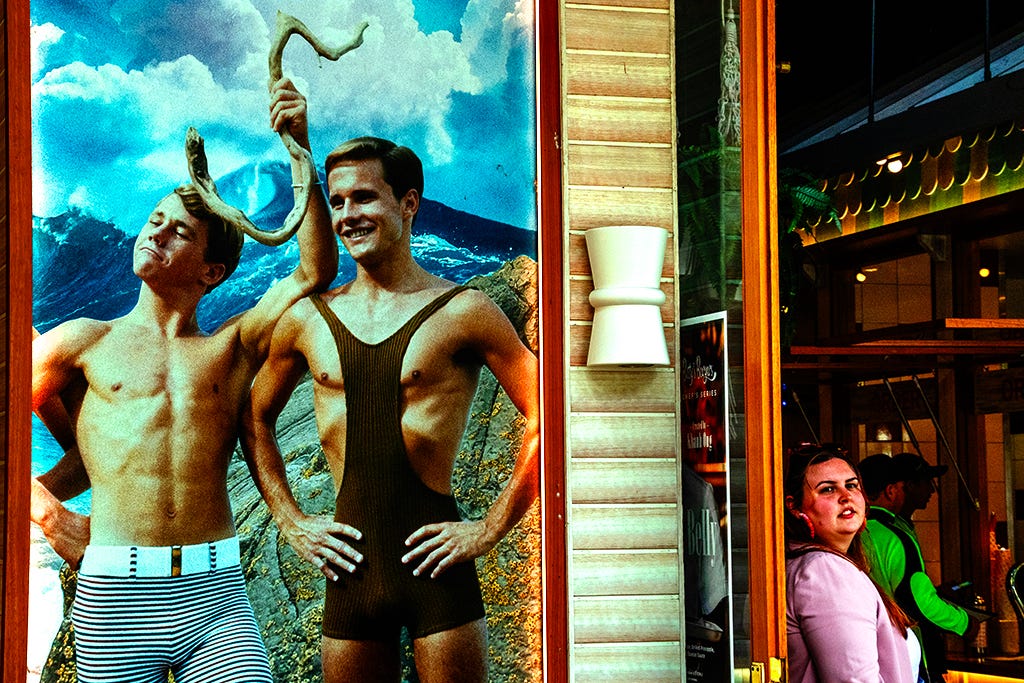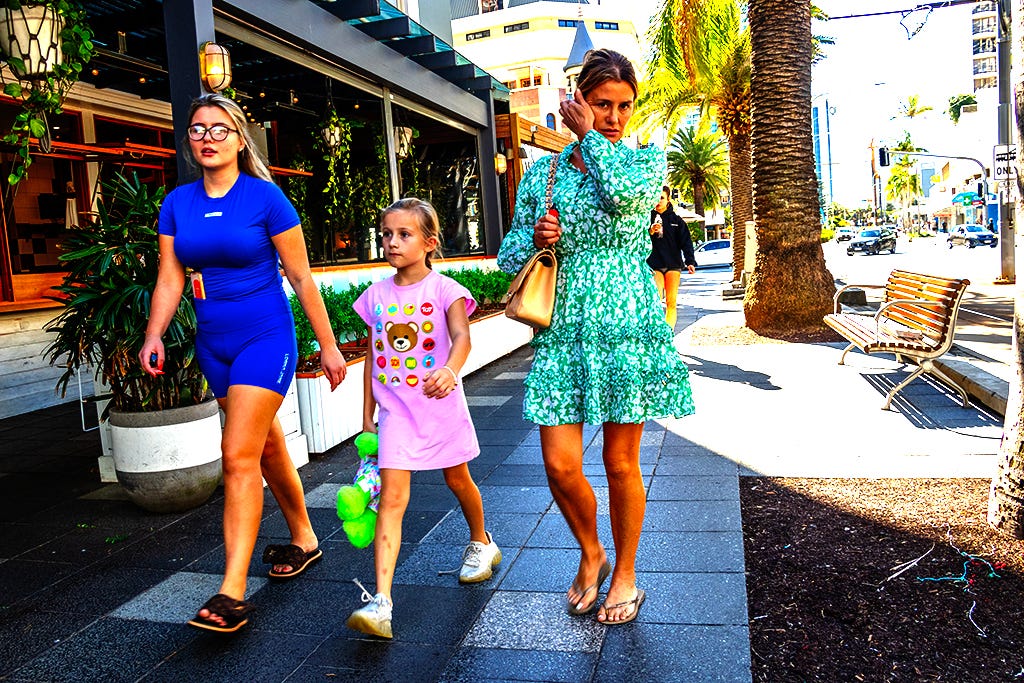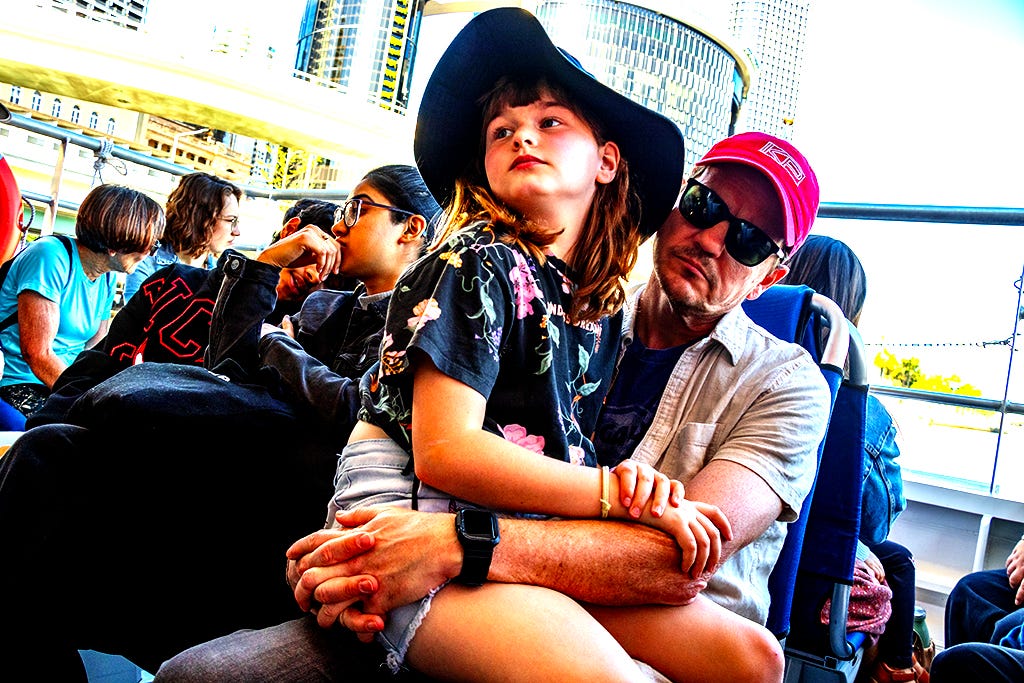[Brisbane, 6/20/24]
Two weeks ago, I joked, “So fine, I’ve booked a wrong flight. Lots of biryani and samosas for the next three weeks then.” Seeing so many Indians at the departure gate in Saigon prompted that. After 8 1/2 hours, I did land in Australia, of course, but now, I’ve done it. Buying a ticket back, I got the date wrong, so am trying to fix my costly mistake. Confusion, blunders and possible accidents keep many folks at home.
On 2/12/24, I published an interview with 65-year-old Tom Herzog. Sick of freezing and expensive Connecticut, Tom was hoping to settle in Dumaguete, Philippines. Before flying there, Tom even had plans to attend the American founded Silliman University.
Disagreeable surprises quickly came. Trying to locate an ATM, Tom had a sun stroke, then the AC over his bed desiccated his larynx. Wild dogs roamed streets, armed guards glowered outside banks and Tom’s laptop couldn’t be plugged in. His downscale hotel may not have had a converter. Though Tom did find a soothing cafe, he had to cross an insane street swarming with trikes to reach it. Only at dawn could Tom find peace.
Returning to grim and snowy Bridgeport, Tom was relieved to find his charmless room in a “vermin infested” house still vacant. His merciful landlady allowed Tom back in. Desolate downtown with its felons, queers and zombies at least had crosswalks.
Contacting Booking.com, I chatted with an agent named Duyen, so I said to my host, Mark, “Booking is based in Amsterdam. What’s the chance of me having a Vietnamese agent? Zero!” With petitioning eyes, I tilted my head towards his stipple ceiling. “God is looking out for me today.”
“Maybe he is.”
“Maybe Duyen is just an AI. Seeing my name, it announced itself as Duyen. If I was an African American, it would come up with something, you know, different.”
I’ve always been absent-minded. In my 20’s, I bought two pairs of jeans for around $60, a big sum. Stopping for a cheesesteak at Philly’s The Bourse, I left without my shopping bag. Not born to purchase, I dreaded walking into stores. Bookshops were the only exceptions.
Winding down my Aussie sojourn, I’ve been preoccupied with Henry Lawson. In Vung Tau a month from now, it’ll be harder to think about this Oz legend. To start, let’s look at one of his “Country Crumbs”:
The Champion speaks of a rover—astray from the straight and narrow track—and tells how oblivion came over the spirit of “Bendigo Jack.” The shadows were dark in the trees, the grass in the gully was damp when Jack, with three sheets in the breeze, rolled home to the union camp. And being top-heavy with beer he fell with his face in the sand, and went shortly after from here—let us hope—to a happier land. And they found him next morn where he lay in the glorious dawn of the south, all covered with beer stains and clay, and sand in his nostrils and mouth.
Though it’s just a sketch without plot, it says much about Australia in 1891. Notice Lawson’s “glorious dawn of the south,” ironic in this context. Life was brutal nearly everywhere. In “Up the Country,” Lawson states:
Further out may be the pleasant scenes of which our poets boast, But I think the country’s rather more inviting round the coast. Anyway, I’ll stay at present at a boarding house in town, Drinking beer and lemon squashes, taking baths and cooling down.
A few lines later:
Bush! where there is no horizon! where the buried bushman sees Nothing—Nothing! but the sameness of the ragged, stunted trees! Lonely hut where the drought’s eternal; suffocating atmosphere Where God-forgotten hatter dreams of city life and beer.
Lawson’s harsh depictions irked another bush bard, A.B. “Banjo” Paterson, so they had a back and forth, with Lawson labeling Paterson “The City Bushman.” Despite his Deliverance veneer, Paterson had an Aboriginal governess and was educated in Sydney. He played polo and watched sculling races. His childhood home is a national heritage site. Banjo is actually the name of his favorite horse.
By contrast, Lawson and his wife dwelt in a tent after their wedding. Often sloshed, Lawson had to be hospitalized repeatedly. He was jailed twice for failing to pay child support. In Manly, he fell off a cliff. Despite all that, Lawson wrote a great deal, emigrated twice to New Zealand and even visited London. At his State Funeral, the Prime Minister pronounced Lawson “the poet of Australia” and “minstrel of the people.”
Paterson, too, became a minstrel of the people. At the far end of the world and exiled from the West, this required mighty striving. Culture seemed elsewhere. Lawson:
Talent goes for little here. To be aided, to be known, One must fly to Northern critics who are juster than our own.
To be an Aussie man of letters meant:
To be buried as a pauper; to be shoved beneath the sod— While the brainless man of muscle has the burial of a god.
If Lawson was just bitter, he wouldn’t have been buried like a god or still cherished. Unlike most of their contemporaries, Lawson and Paterson paid close attention to what drovers, shearers, bullock drivers, bushrangers, bushmen, washerwomen, new-chums, station hands, diggers, jackaroos, rouseabouts, bogans and larikins had to endure and how they talked. To my ears, at least, Lawson knocked Paterson flat.
As poets, they used conventional forms, but Lawson’s diction is much more natural. Unlike Paterson, Lawson didn’t poeticize his landscape or people, so there are no “fairest maids,” “city urchin,” “fields of youth,” “carol of the magpie,” “smiling plain” or “swain.” Instead, we get “a stealer and duffer of cattle,” “treacherous blacks in the darkness crept,” “men whose childhood knew the brothels and the slums” and “the spiritless dingo in tow of my heels.” Lawson’s people die of disease, rum and sorrow. His women plough, grub, mend fences, milk cows, drive nags, sew, wash and sometimes sing to themselves until they drop dead.
For a fuller sample of Lawson’s humor and authority, read his “Settling on the Land.” Here’s a teaser about this city transplant raising cattle:
First, the cows’ eyes got bad, and he sought the advice of a German cockie, and acted upon it; he blew powdered alum through paper tubes into the bad eyes, and got some of it snorted and butted back into his own. He cured the cows’ eyes and got the sandy blight in his own, and for a week or so he couldn’t tell one end of a cow from the other, but sat in a dark corner of the hut and groaned, and soaked his glued eyelashes in warm water. Germany stuck to him and nursed him, and saw him through.
Though raised on an exhausted gold field, young Lawson read Shakespeare, Defoe, Dickens, Poe, Harte and Twain. His mother was an aspiring writer. Visiting Australia in 1895, Twain packed theaters with enthusiastic crowds that included top officials and clergymen. The Melbourne Argus:
Everybody in Melbourne who could get into the building seemed to be there, and there never was an audience that seemed more convinced that it had got the worth of its money. For two hours there was a continuous roar of laughter, with the exception of a seven minutes interval, and one or two places where the humorous and the pathetic met, and people did not quite know whether to laugh or cry.
Though Twain was a hero and model to Lawson, he couldn’t attend any of Twain’s performances. Lawson was broke and obscure. Just a year earlier, his mother had published his first book.
Even in Tasmania, Twain was a celebrity. There, Twain was asked if he was sorry to be leaving.
“Yes,” he said slowly. “I didn’t come to stay, but I’m sorry downright sorry. In this Australian trip the change to me has been delightful. I’ve met a good many people, and they’ve all been hearty and friendly. The same thing applies to my audiences, who have all along welcomed me in a fashion which is exceedingly pleasant to a stranger. All my impressions of the country and of the people are of a pleasant sort, for the reason that it is the human element that makes a country beautiful or otherwise. All this now (and he indicated Mt Wellington and its environment) all this is beautiful, but it seems to me that this could not be beautiful of itself. Scenery by itself is all very well; but the weather can damage scenery. You must have the pleasant human element to counteract the effects of climate and circumstance. Any country is pleasant, if the people are pleasant; any country is beautiful if the people receive you kindly. There’d be no perceptible beauty to a lone man in a tropical sunset if there were irreconcilable cannibals in the foreground; there is no scenery in the world that could be beautiful in the circumstances. The idea that scenery is beautiful of itself is mere nonsense, in one way or the other it must be modified by the human element.”
Still five years from independence, a land often lampooned could appreciate Twain and produce a Henry Lawson, so it’s already much more civilized than, say, today’s America!
The stereotype of Aussies as simpletons has been pushed by natives themselves. Always excited Steve Irwin’s “crikey!” is only said here in jest, and rarely. Just arrived to London’s “Kangaroo Valley” in 1962, Clive James saw “young men whose jug ears stuck out unmistakably from their short haircuts on either side of a freckled area of skin which could be distinguished as a face, rather than a neck, only by the presence of a nose and a mouth.”
James also said, “Common sense and a sense of humor are the same thing, moving at different speeds. A sense of humor is just common sense, dancing.”
As in much of the West, common sense and humor are ebbing in Oz. Henry Lawson would likely rage and weep.
[Mark eating a meatpie at Felons in Brisbane on 6/20/24]
[Brisbane, 6/4/24]
[Gold Coast, 6/12/24]
[Brisbane, 6/10/24]








Hi everyone,
To make a sharper distinction between Lawson and Paterson, I just added this paragraph to the essay:
As poets, they used conventional forms, but Lawson’s diction is much more natural. Unlike Paterson, Lawson didn’t poeticize his landscape or people, so there are no “fairest maids,” “city urchin,” “fields of youth,” “carol of the magpie,” “smiling plain” or “swain.” Instead, we get “a stealer and duffer of cattle,” “treacherous blacks in the darkness crept,” “men whose childhood knew the brothels and the slums” and “the spiritless dingo in tow of my heels.” Lawson’s people die of disease, rum and sorrow. His women plough, grub, mend fences, milk cows, drive nags, sew, wash and sometimes sing to themselves until they drop dead.
Linh
Your past few articles about SE Queensland have made enjoyable, and educational, reading. There's been a subtle change of tone between the way you describe the eastern USA or eastern Asia and how you've experienced Australia. Perhaps that comes from being so intimate with the two former areas by contrast with SE Queensland which you seem to view slightly more abstractly - but with no loss of penetrating observation.